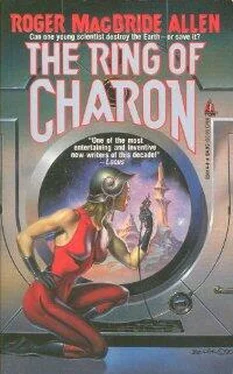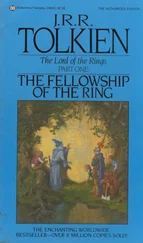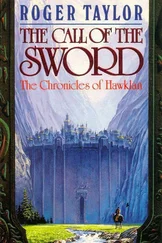Roger Allen - The Ring of Charon
Здесь есть возможность читать онлайн «Roger Allen - The Ring of Charon» весь текст электронной книги совершенно бесплатно (целиком полную версию без сокращений). В некоторых случаях можно слушать аудио, скачать через торрент в формате fb2 и присутствует краткое содержание. Год выпуска: 1990, ISBN: 1990, Издательство: Tor Books, Жанр: Фантастика и фэнтези, на английском языке. Описание произведения, (предисловие) а так же отзывы посетителей доступны на портале библиотеки ЛибКат.
- Название:The Ring of Charon
- Автор:
- Издательство:Tor Books
- Жанр:
- Год:1990
- ISBN:0-812-53014-4
- Рейтинг книги:5 / 5. Голосов: 1
-
Избранное:Добавить в избранное
- Отзывы:
-
Ваша оценка:
- 100
- 1
- 2
- 3
- 4
- 5
The Ring of Charon: краткое содержание, описание и аннотация
Предлагаем к чтению аннотацию, описание, краткое содержание или предисловие (зависит от того, что написал сам автор книги «The Ring of Charon»). Если вы не нашли необходимую информацию о книге — напишите в комментариях, мы постараемся отыскать её.
The Ring of Charon — читать онлайн бесплатно полную книгу (весь текст) целиком
Ниже представлен текст книги, разбитый по страницам. Система сохранения места последней прочитанной страницы, позволяет с удобством читать онлайн бесплатно книгу «The Ring of Charon», без необходимости каждый раз заново искать на чём Вы остановились. Поставьте закладку, и сможете в любой момент перейти на страницу, на которой закончили чтение.
Интервал:
Закладка:
Lucian leaned over Vespasian and spoke in a steel-edged voice. “I don’t believe it either. I just know I saw it happen. Why, how, who or what did it, I don’t know. What I do know is that without Earth’s gravity as an anchor, every orbit and trajectory within a million kilometers of here is seriously screwed up. We’ve got to recalculate the orbit of every goddamn ship, satellite and habitat before they all start piling into each other. You get back to your own console and convince yourself. I’ve got to work on what we do next once you are convinced.”
Vespasian swelled himself up, as if ready to explode— and then stopped. He knew he was a tyrant, and sometimes a bully with his people—but he prided himself on knowing the truth when he heard it, and on accepting a little bullying himself when it was necessary.
Earth was gone . Getting people to believe that news was going to be a full-time job for Vespasian. He was having trouble enough convincing himself.
CHAPTER EIGHT
Tears for the Earth
Second by second, millisecond by millisecond, in slow motion, Earth disappeared again. The cloud of blue-white appeared, swelled up and engulfed Earth. Hiram ran the key frames back and forth again. Wait a second. It was tough to tell at this resolution and this angle, but it didn’t look like that cloud was a globe forming around Earth, but rather a disk-shaped body forming behind the planet, between the Earth and Moon. Hiram watched the monitor as the cloud moved forward, toward the camera and away from the Moon, sweeping over Earth, and then winked out of existence, leaving no trace of Earth behind.
What the devil was the cloud?
Hiram sat alone in the main control room, hunched over his computer panels, glad for the peace and quiet. He didn’t quite know or care what had happened to the rest of the staff. For a gifted scientist, there were a lot of things Hiram McGillicutty didn’t notice or understand. Like other people, for starters.
It was, in a way, a family trait. He had been born into one of the old pioneer families on Mars, and his greatgrandfather had been one of the earliest—and most obstreperous—of the Settlement World leaders way back when.
Hiram had not inherited his ancestor’s political skills, or even his marginal ability to understand people, but Hiram had certainly gotten the old boy’s single-mindedness. He had also gotten a full dose of another unfortunate family trait—an almost complete inability to see the other person’s point of view.
The rest of the station was in shock, struggling to come to terms with an incalculable loss. But Hiram was from Mars. He had never even visited Earth.
If the rest of humanity was stunned and terrified, Hiram McGillicutty was merely fascinated. No known mechanism could do this to a planet. Clearly there was a new principle at work here. And he would be the one to crack it. On that, he was determined.
If the silence in the station meant anything at all to him, it was that he had a leg up on the competition. Here was the greatest scientific puzzle in history—and he was well ahead of the pack. After all, if his station mates weren’t working, who else would be?
He sat alone in the main control room, pleased that every instrument and data record was, for the moment, his and his alone. He ran the visual record on the right screen again, throwing a new set of data overlays on the left-side screen.
He watched the infrared image track up against the visible-light image of Earth. In visible light, that blue-white cloud bloomed up out of nowhere, but in infrared, there was nothing. It wasn’t there at all. No IR activity at all—except of course the Earth’s infrared image, vanishing when Earth did.
Or maybe he just didn’t have good enough data to see the IR from here. He racked up the near-ultraviolet image and ran it against visible light again. Too bright. The event, whatever it was, positively glowed in UV. But then, VISOR had very sensitive UV detectors, far better than its IR stuff. Maybe the signal strengths he was seeing were artifacts of his own instruments’ relative sensitivity. He would have to compensate for that. But later. Later. Now he just had to look at the raw data. All of it.
He stared hard at the visible-light image. VISOR was not intended as an astronomical observatory, of course, and the long-range optics used to get the last images of Earth did not provide very high resolution. Unfortunate, but no matter. Some sort of camera would have been running on the Moon. Sooner or later, he could see that imagery.
He pulled up far UV and ran that. A bright, fuzzy image that told him nothing. Damn it, he would need better images of Earth! For now he would have to settle for the view from VISOR of a slightly smeary Earth about the size of a golf ball at arm’s length. He watched the playback again and again, tracking the vanishment against every data line he had recorded. This was the third time he had run through the complete dataset.
The amplitude lines and false-color images for UV, visual, infrared, magnetism, and radio marched across the right-side screen, one after the other, and then again in various combinations—while on the left-hand screen, the visible-light Earth vanished again and again. It was a crude technique, and no doubt the computer system could have found any and all corollaries between the various datasets within a few milliseconds. Later he would use the computer to do just that. But speed was not the only issue here. Hiram wanted to be immersed in the data, wanted to understand each bump and twist of it backwards and forwards. Then, when he ran it through the computer, perhaps he could understand what the computer’s findings were telling him.
Even without a computer, he had already learned two or three fascinating things not readily apparent.
One, Earth vanished not at the moment the gravity beam struck it, but 2.6 seconds afterwards—which, interestingly enough, was the period of time it took for light to travel between Earth and the Moon and back.
Two, simultaneous with the vanishment came the first of a massive series of gravity-wave pulses—far more powerful than the Pluto beam, and continuing long after Earth was gone. Indeed, VISOR’s gear was still detecting gee waves from the vicinity of Earth’s former orbit. Those waves had to be coming from somewhere—presumably someplace fairly large, as it would require a Ring of Charon-size generator to create them.
Three, that squeal on the twenty-one-centimeter band had started at the moment Earth vanished, and it likewise was continuing, long after the Earth was gone. As best his direction-finding gear could tell, it was coming from the Moon, though no known Lunar transmitter worked on that frequency.
All of which strongly suggested that the Moon had something to do with what had happened.
There was another point, a rather obvious prediction. The orbits of every planet in the Solar System were going to be very slightly shifted. Nothing very dramatic, of course. There would be minor changes to Venus’s orbit, and Mars’s. Enough to throw off navigation a bit, that was all. The big changes would be in the area of the Moon.
Which was probably more than anyone on the Moon had realized yet, McGillicutty told himself proudly.
McGillicutty cackled to himself. Nice to be ahead of the pack. But in science, it was important not just to be ahead, but to prove it, to the world at large.
He ordered the computer to summarize his finding and transmit the text and images to all the public-access channels on the Moon, Pluto, Mars and the major satellites.
That ought to give them something to think about. He read over the computer-generated summary, made one or two changes, adjusted a few of the graphs, and told the computer to send it. He grinned and started running the playbacks again. He was having a wonderful time.
Читать дальшеИнтервал:
Закладка:
Похожие книги на «The Ring of Charon»
Представляем Вашему вниманию похожие книги на «The Ring of Charon» списком для выбора. Мы отобрали схожую по названию и смыслу литературу в надежде предоставить читателям больше вариантов отыскать новые, интересные, ещё непрочитанные произведения.
Обсуждение, отзывы о книге «The Ring of Charon» и просто собственные мнения читателей. Оставьте ваши комментарии, напишите, что Вы думаете о произведении, его смысле или главных героях. Укажите что конкретно понравилось, а что нет, и почему Вы так считаете.












